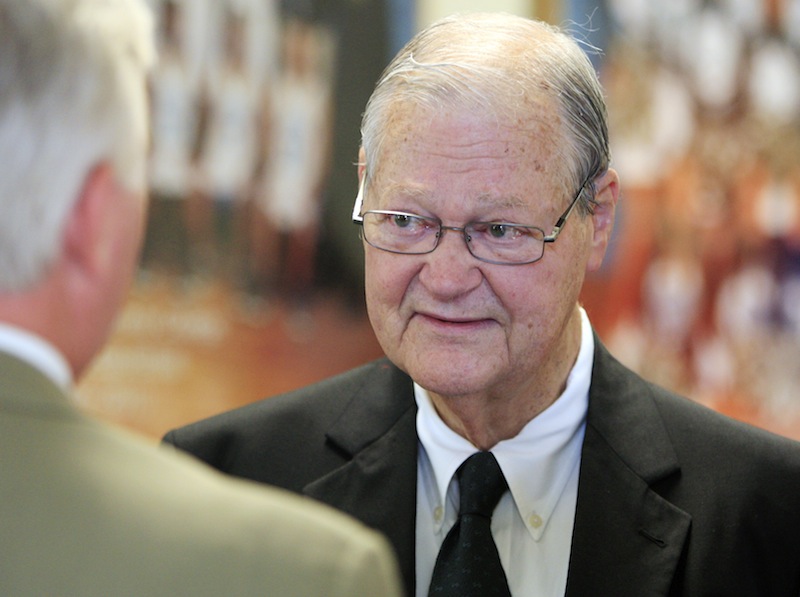Republicans are widely expected to make significant gains this November, possibly, perhaps even probably, taking back control of the House of Representatives. This is to be expected to some extent, as the Democrats enjoyed two big wave elections in 2006 and 2008, and many of those House members won’t be coming back. But there are some other Dems, who in many other cycles would be safe bets to be reelected, that have unexpectedly ended up in tough races after longer tenures in Congress.
[TPM’S TOP 10 HOUSE RACES TO WATCH]
The House members we’re talking about are folks who have been easily re-elected in past cycles, often without significant opposition, in districts that were leaning Republican in other ways, such as in the presidential vote. But in a year where the GOP has the wind at their backs, these Dems are now being aggressively targeted, and facing tough races.
“You always have some Congressmen who have been shaky,” said Professor Larry Sabato from the University of Virginia, in an interview with TPM. “You think of John Spratt. Look at his district, where it is in South Carolina, he’s never really that safe. Ike Skelton [of Missouri] — they’re just never that safe. They get a lot of passes, and their incumbency and their chairmanships help them. But every now and then the sun and the moon and the stars align just right and they’re in trouble. It doesn’t mean they’ll lose, but they’ll have close and competitive races, anyway.”
So let’s take a look at some of the Dems who have been in Congress for awhile — and somewhat surprisingly, will have to work hard this year to stay there. This list is not exhaustive of all suddenly-vulnerable Dems, nor is it meant to imply that all or even any of them are guaranteed to lose. But it does give a sense of the current hostile environment and lack of Democratic enthusiasm — especially as it spreads to districts that have been becoming more Republican underneath their occupants’ feet.
 Rep. John Spratt (D-SC)
Rep. John Spratt (D-SC)
Spratt was first election in 1982, and currently serves as chairman of the House Budget Committee. In 2008, he was re-elected with 62% of the vote — at the same time as his district voted for John McCain by 53%-46%. A recent internal poll from his Republican opponent, state Sen. Mick Mulvaney, has them tied at 46%-46%.
 Rep. Ike Skelton (D-MO)
Rep. Ike Skelton (D-MO)
Republicans are aggressively targeting Skelton, who hails from a district that has been becoming more and more Republican-friendly. Skelton won with 66% of the vote in 2008, at the same time as the district voted 61%-38% for John McCain. Skelton was first elected in 1976, and currently serves as chairman of the House Armed Services Committee. His Republican opponent is former state Rep. Vicky Hartzler.
 Rep. Earl Pomeroy (D-ND)
Rep. Earl Pomeroy (D-ND)
Pomeroy was first elected to North Dakota’s single House seat in 1992, and only rarely has he faced a serious contest. He was easily re-elected in 2008 with 62% of the vote, while the state voted 53%-45% for John McCain — which was actually a significant improvement from the 63%-35% margin for George W. Bush in 2004. But this year, the TPM Poll Average shows Republican state Rep. Rick Berg leading Pomeroy by 51.4%-44.9%.
 Rep. Stephanie Herseth-Sandlin (D-SD)
Rep. Stephanie Herseth-Sandlin (D-SD)
Herseth-Sandlin was elected narrowly in a 2004 special election, after the previous Republican Congressman Bill Janklow — who had narrowly defeated her in the 2002 general election — resigned after he was convicted of manslaughter after he hit and killed a motorcyclist with his car. Herseth-Sandlin was easily re-elected in 2008 with 68% of the vote, while her state voted 53%-45% for John McCain. Like North Dakota, this was a significant swing from the previous solid Republican result of 60% for George W. Bush in 2004. The TPM Poll Average shows her in a tight race with Republican state Rep. Kristi Noem, with a lead that has switched places at times. Herseth-Sandlin is currently ahead by the narrow margin of 47.2%-45.0%.
 Rep. Leonard Boswell (D-IA)
Rep. Leonard Boswell (D-IA)
Boswell was first elected in 1996, and has occasionally faced close races. In the very Democratic years of 2008, he was easily re-elected with 56% of the vote, and the district voted 54%-45% for Barack Obama — up from a 49.7%-49.6% edge to George W. Bush in 2004. Republicans have hoped that state Sen. Brad Zaun could end Boswell’s streak. The TPM Poll Average — which admittedly is based only on Republican pollsters as of now — gives Zaun a lead of 45.8%-37.0%.
 Rep. Rick Boucher (D-VA)
Rep. Rick Boucher (D-VA)
Boucher was first elected in 1982. However, his southwestern Virginia district has become more and more Republican over time. He was re-elected unopposed in 2008, while the district voted 59%-40% for John McCain. Republicans have been touting the candidacy of state House Majority Leader Morgan Griffith. For now, the TPM Poll Average gives Boucher a lead of 51.0%-39.5%.









